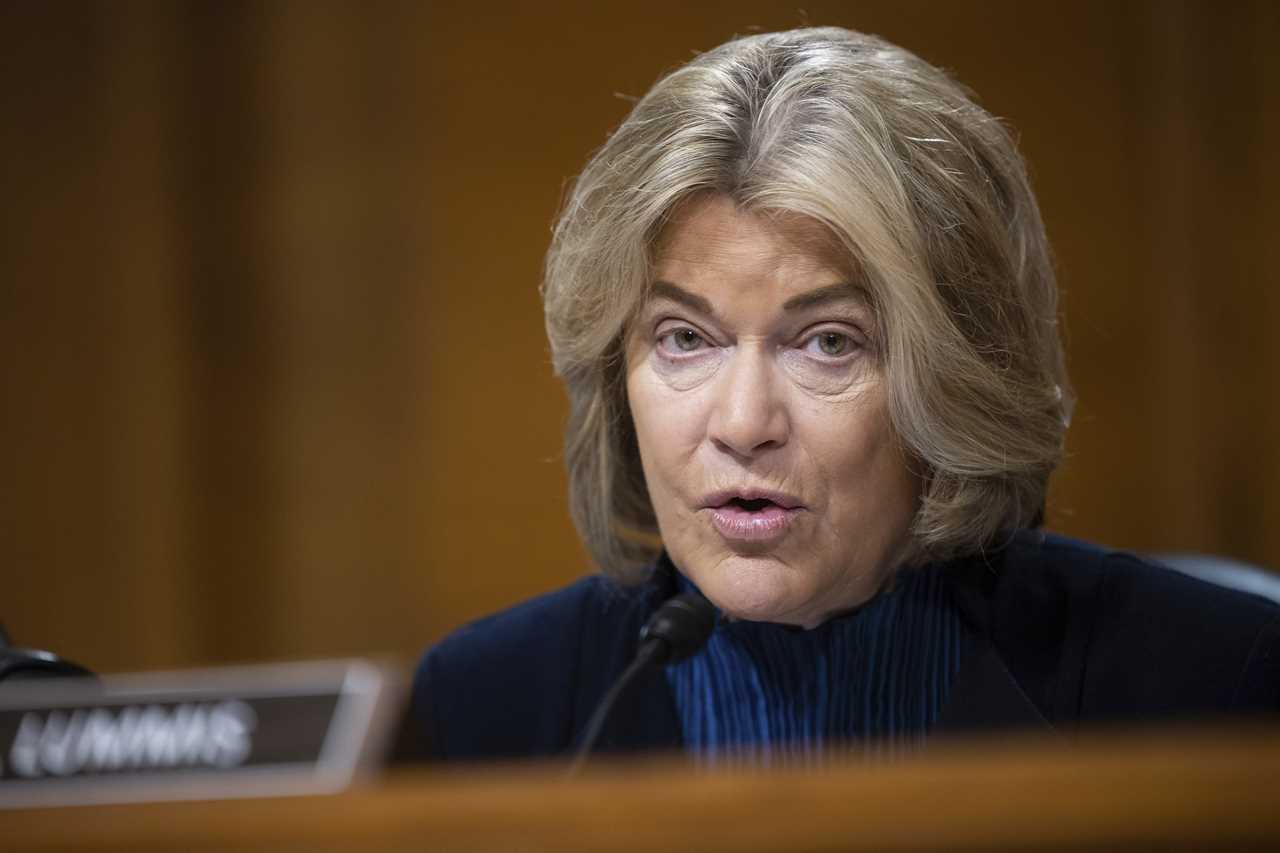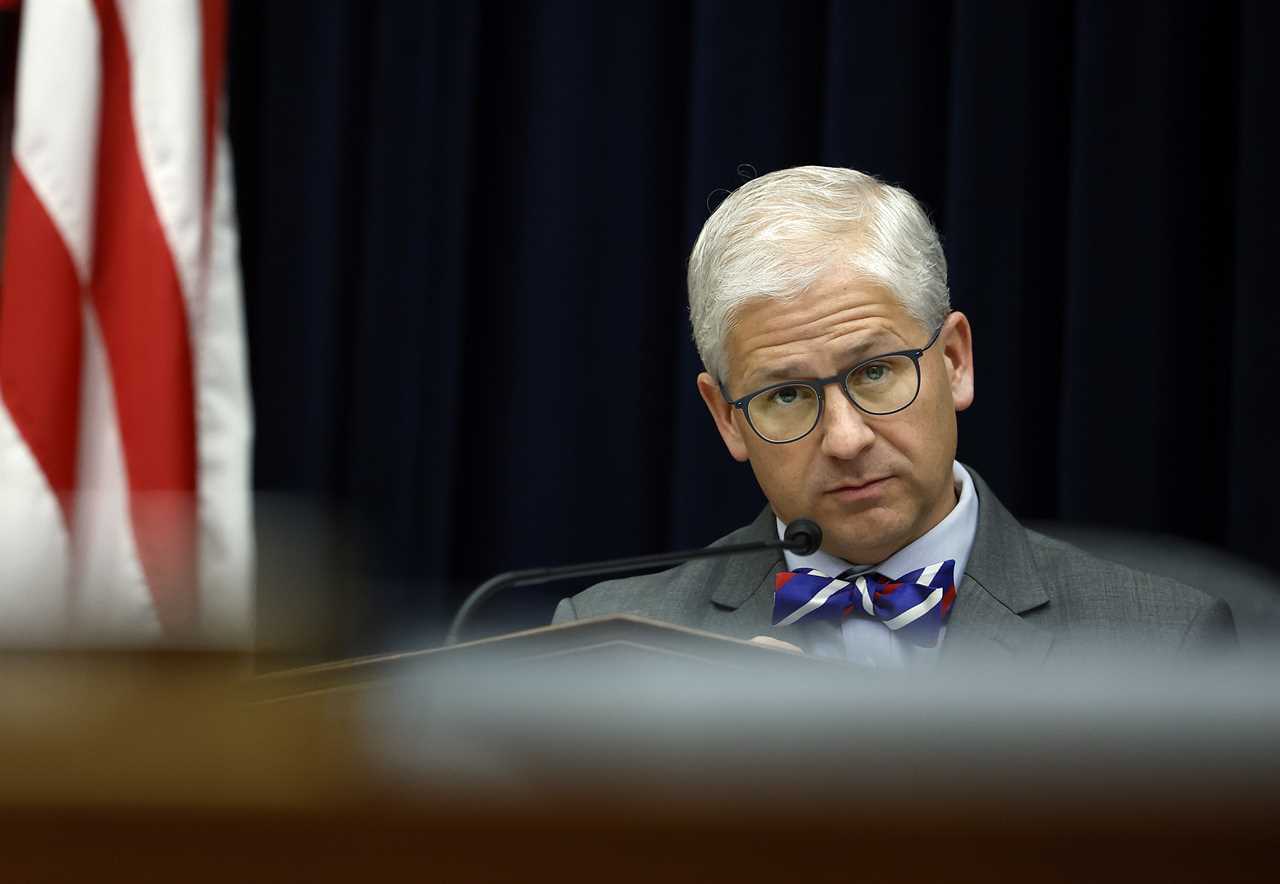
House Republicans are about to hand the cryptocurrency lobby a big win via legislation that would set up special rules for trading digital assets.
There's just one problem: A growing and bipartisan group of senators – including everyone from Sens. Mitt Romney (R-Utah) to Elizabeth Warren (D-Mass.) – is rallying behind a crackdown that crypto firms hate, following a wave of scandals and fears that digital currency is ripe for criminal abuse. They want to impose new safeguards designed to root out crypto’s use in money laundering.
Even allies like Sen. Cynthia Lummis (R-Wyo.) — dubbed the Senate’s “crypto queen” — are warning that the industry needs to accept the emerging political reality.
“If we can get this part of it addressed from the very beginning, before the regulatory framework is passed, then we've taken that concern off the table,” Lummis said in an interview. “And we can actually talk about digital assets in terms of how to regulate.”
The divide in Congress illustrates a new political challenge for crypto exchanges and token providers.
They made big advances in winning over Washington in recent years, and that lobbying campaign is helping drive a major victory in the GOP House. But recent revelations of widespread mismanagement and fraud, long-running concerns about crypto’s use to facilitate criminal transactions and the lack of clear economic benefits have left a critical mass of lawmakers unwilling to grant the industry its legislative wish-list scot-free.
“In some ways, I think the Senate approach is smarter — because they're solving a very clear and present problem,” said Rep. Jim Himes (D-Conn.), who has been negotiating with House Republicans and is considering supporting some of their proposals. “[In the House] it's this idea that, ’Oh my goodness, exchanges may set up in Australia.’ That would make me sad. But again, I just don’t know that. I just think there’s a lot of nonsense in this industry.”
In the House, Republicans are planning to hold committee votes Wednesday and Thursday on landmark crypto bills that represent Congress’ most ambitious attempt yet to set up a regulatory framework tailor-made for digital currency.
One of the bills would establish federal oversight for stablecoins, a form of crypto token that’s backed by assets like the U.S. dollar.
A second, much broader proposal would impose new restrictions on the role of the Securities and Exchange Commission in policing crypto while empowering the smaller Commodity Futures Trading Commission — a setup that crypto firms have sought for years and that Republicans say is crucial to prevent them from moving offshore.

House Financial Services Chair Patrick McHenry (R-N.C.) and other Republican leaders guiding the effort, like digital assets subcommittee Chair French Hill (R-Ark.), have spent weeks working with Democrats in a bid to advance legislation that would have a viable shot of becoming law.
“The collapse of FTX last fall has given both Republicans and Democrats an impetus to be looking for the kinds of proper statutory solutions that would prevent something like that happening in the future,” Hill said in an interview. “That’s what's driving a consensus to try to develop a regulatory framework.”
Republicans have been helped along the way by industry leaders like Coinbase CEO Brian Armstrong, who met with moderate House Democrats, among others, on the bills Wednesday. The Blockchain Association has also “been doing a lot of meetings with [House] Democratic offices,” the group’s CEO, Kristin Smith, said.
“We will accommodate every concern people have with these two bills,” McHenry said. “That’s our goal.”
A few rank-and-file Democrats have signaled their support but it’s unclear how many will vote for the bills.
Federal Reserve officials have warned lawmakers about the way the stablecoin bill allows for states to continue to play a role in policing the tokens, according to House Democrats, with Fed Chair Jerome Powell testifying that "allowing a lot of private money creation at the state level would be a mistake." There is also concern about tying the hands of the SEC, which has been one of the most active federal regulators targeting crypto fraud.
Then, there’s the Senate.
One of the chamber’s lead decision-makers on crypto policy, Senate Banking Chair Sherrod Brown (D-Ohio), has made clear over the years that he sees little, if any, value in digital currency and instead believes there are major risks to consumers.
He said the House GOP plan “is fairly simplistic and doesn't really bring into the regulatory umbrella who it should.”
“It’s, not surprisingly, pretty inadequate,” he said.
The last few weeks have shown that several other senators – on both sides of the aisle and on Brown’s committee – would like to take a tougher approach as well.
The focus of the new push is a desire to force digital asset entities to do more to root out illicit transactions, such as payments involved in drug trafficking and sanctions evasion.
Warren was among the first to prioritize the issue last year, when she floated a bipartisan bill to impose anti-money laundering rules on crypto firms. The bill, co-sponsored by Sen. Roger Marshall (R-Kan.), triggered intense pushback from digital currency advocates.
Lummis and Sen. Kirsten Gillibrand (D-N.Y.) have been applauded by those same advocates for a proposal to set up a special regulatory framework for crypto trading. But they’re now teaming up with Warren and Marshall in a push to include crypto financial crime safeguards in the Senate’s annual defense policy bill.
Separately, Sens. Jack Reed (D-R.I.), Mike Rounds (R-S.D.), Mark Warner (D-Va.) and Romney have a new bill that would require decentralized crypto exchanges and crypto kiosks to comply with the same anti-money laundering and economic sanctions rules as banks.
“We're basically expanding the same protections which had been provided elsewhere,” Romney said.
Digital asset firms have argued that a new layer of anti-money laundering rules would be unnecessary and potentially harmful. Smith, with the Blockchain Association, called the concern “sort of a non-issue” and “one area of policy that’s working really well.”
But according to Brown, who has a big say in the matter, crypto anti-money laundering legislation would be the Senate’s first priority – if it does anything on digital assets.
“The first part is whatever it takes to crack down on the money launderers and the criminal syndicates that are using crypto,” he said.
----------------------------------------
By: Eleanor Mueller
Title: Crypto's House win collides with Senate skepticism
Sourced From: www.politico.com/news/2023/07/24/house-senate-crypto-crackdown-00107641
Published Date: Mon, 24 Jul 2023 03:30:00 EST
Did you miss our previous article...
https://consumernewsnetwork.com/politics-us/club-for-growth-prepares-20m-fund-for-boebert-gaetz-and-other-mccarthy-opponents






